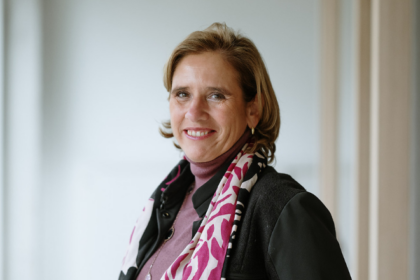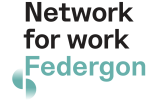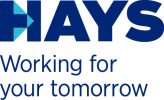Untapped refugee potential opportunity for European talent shortage
Remote work for refugees could provide a solution to Europe’s talent shortage. If one is willing to tackle the challenges thoroughly and include refugees in decision-making. Speaking is Lorraine Charles, co-founder of Na’amal and researcher at Cambridge University.
Le travail à distance pour les réfugiés est une des clés de la pénurie de talents sur le marché du travail européen. La condition ? Être prêt à relever les défis de manière approfondie et d’inclure les réfugiés dans le processus décisionnel. Découvrez notre interview en anglais avec Lorraine Charles, cofondatrice de Na’amal et chercheuse à l’Université de Cambridge.
De plus en plus d’organisations professionnalisent le recrutement de leurs talents externes. NextConomy propose donc une série d’entretiens autour du thème central « Women in Contingent Workforce ». Ils ont pour but d’inspirer et de partager des idées avec tous ceux qui sont impliqués de près ou de loin dans le recrutement de talents externes. En particulier, nous voulons montrer aux femmes qu’il existe des carrières passionnantes dans un domaine encore relativement novateur et inconnu, mais tourné vers l’avenir et d’une importance stratégique croissante pour les organisations.
Lorraine Charles studied the livelihoods of refugees in Jordan, Turkey and Lebanon. Confronting the very limited employment opportunities for refugees in those countries’ technical sectors resulted in the creation of Na’amal.
Convinced that talent knows no borders, she advocates remote working for and by refugees.
From somewhere to a job
The refugees she works with often already have a base of technical skills. However, a lack of 21st-century and job ready digital skills shows up. And this is often given little attention in refugee livelihood programmes. Which makes employment difficult.
Lorraine Charles wants to close this gap. In collaboration with other organisations, Na’amal focuses on further developing technical skills and soft skills such as communication and leadership skills among refugees. The latter are technology- and future-proof and offer more job opportunities.
Intellectual thought becomes reality
Remote working was very niche in 2016, when Lorraine Charles started her research. Companies with globally dispersed teams were still in the minority. Some companies were attracted to the idea but did not yet believe in its success.
Covid proved otherwise. And so in 2020, a first project started in Jordan with a focus on remote employment of refugees.
Lack of clarity undermines success of refugee employment
The challenge of such a remote employment project lies not so much in interest among companies but in limited understanding of how to employ refugees.
Companies whose senior management wants to take the plunge often still face reluctance from HR and compliance. Because of a lack of clarity around regulations and remuneration, among other things.
Hiring refugees requires attention
The recruitment and screening process can be challenging. A refugee’s profile does not always match what a company wants. Gaps in education, unrecognised qualifications, a different cultural context in which a refugee has not previously been exposed to Western business standards are just some of the issues that surface.
To address these challenges and ambiguities, organisations like MIT ReACT, TENT and Na’amal worked together. They published the guide ‘Guide on redesigning the tech hiring process to include displaced talent‘ in 2021.
The 2023 Migration Summit also looked further into the possibilities. Representatives from the International Labour Organisation (ILO) and the United Nations High Commissioner for Refugees (UNHCR), among others, discussed the challenges and perspectives of refugees as freelancers.
Employment platforms are not yet a solution
Lorraine Charles notes that successful employment of refugees currently comes mainly from personal connection.
Working through employment platforms is, she says, not yet a sufficient solution because the link between an open labour market and people who do not know the labour market is still difficult to make.
However, she does believe in mentoring programmes as a way to indirectly connect companies with the talent present within the refugee population.
European negative image is inaccurate
Lorraine Charles advocates changing the negative image that Europe puts up as a sufferer of the refugee crisis. “Because,” she argues, “Europe does not have a refugee crisis.”
“Europe does not have a refugee crisis.” – Lorraine Charles
The crises are taking place in the Middle East and Africa.
She refers to Lebanon, which is hosting more than a million refugees. To Turkey, which, with its problematic political dimensions, received about 4 million Syrian and other refugees.
Most refugees are accommodated in neighbouring countries to the country they fled from. And that, she says, is where the real need is. It is countries like Kenya, Uganda and Rwanda that are struggling to find jobs for their own people.
A potential for untapped tech talent
The African continent is struggling with a severe shortage of developers. Refugees are being trained as software developers in partnership with Na’amal. And that gives them opportunities in the local labour market.
“But,” Lorraine Charles stresses, “the world of work goes beyond the local community. Well-trained refugees can be used to reduce the global shortage of technical talent.”
“Will Europe, paralysed by an ageing population and insufficient workforce, continue to resist immigration?” – Lorraine Charles
The need for diverse talent
By 2030, eighty per cent of Africa’s population will be under 30. In Europe, the opposite is happening.
Lorraine Charles reflects critically. She wonders where and how Europe will find the talent it needs. She makes the comparison with Japan. “Will Europe, paralysed by an ageing population and insufficient workforce, continue to resist immigration?”
She advises companies to review their business models and be open to diversity across borders. Diverse talent improves companies’ image and helps them move forward. Failure or difficulty in finding that talent undermines the growth of Western companies and the economy.
Plea for more inclusiveness
“Existing events, conferences and summits around refugees are for them, not with them,” Lorraine Charles denounced. “When refugees attend, they are often there as a symbolic gesture.”
It can be different.
– Give refugees a voice.
– Make sure you know their concerns.
– Understand how the interventions provided for them may or may not benefit them.
“We need to be more inclusive, because the Global North can no longer adopt a patriarchal attitude towards the Global South. Let refugees be part of discussions, involve them in decision-making,” she concludes her speech.
ABOUT LORRAINE CHARLES
Lorraine Charles is a social entrepreneur and a researcher. She is the Co-founder and Executive Director of Na’amal, which links forcibly displaced people with remote work opportunities. She is the Digital Solutions Specialist for Finn Church Aid. Lorraine is also a Research Associate for the Centre for Business Research, University of Cambridge. She is also a member of the MIT ReACT Advisory Committee and the International Rescue Committee (IRC) Technical Advisory Committee for ReBuild, their East Africa livelihood programme.


















